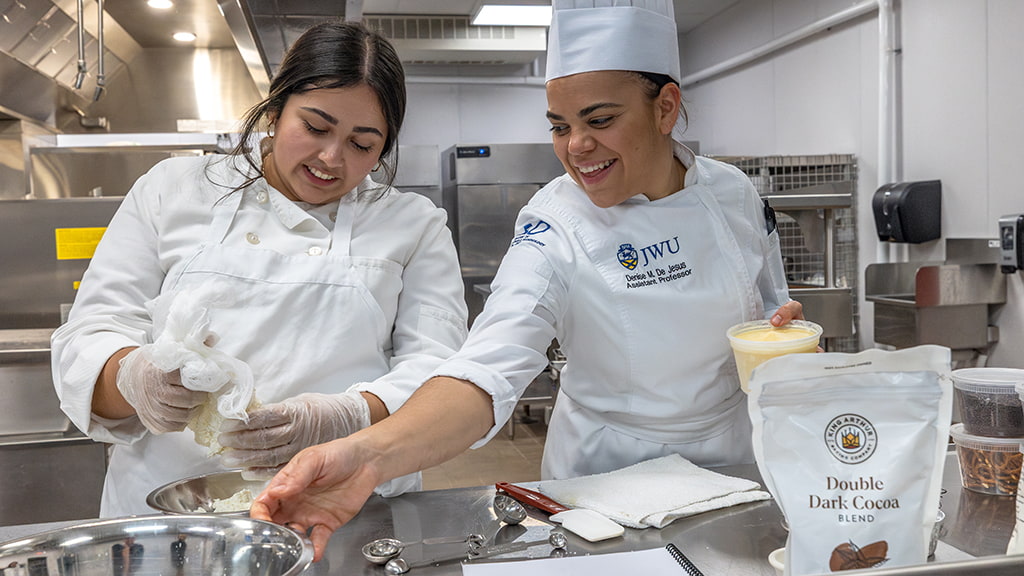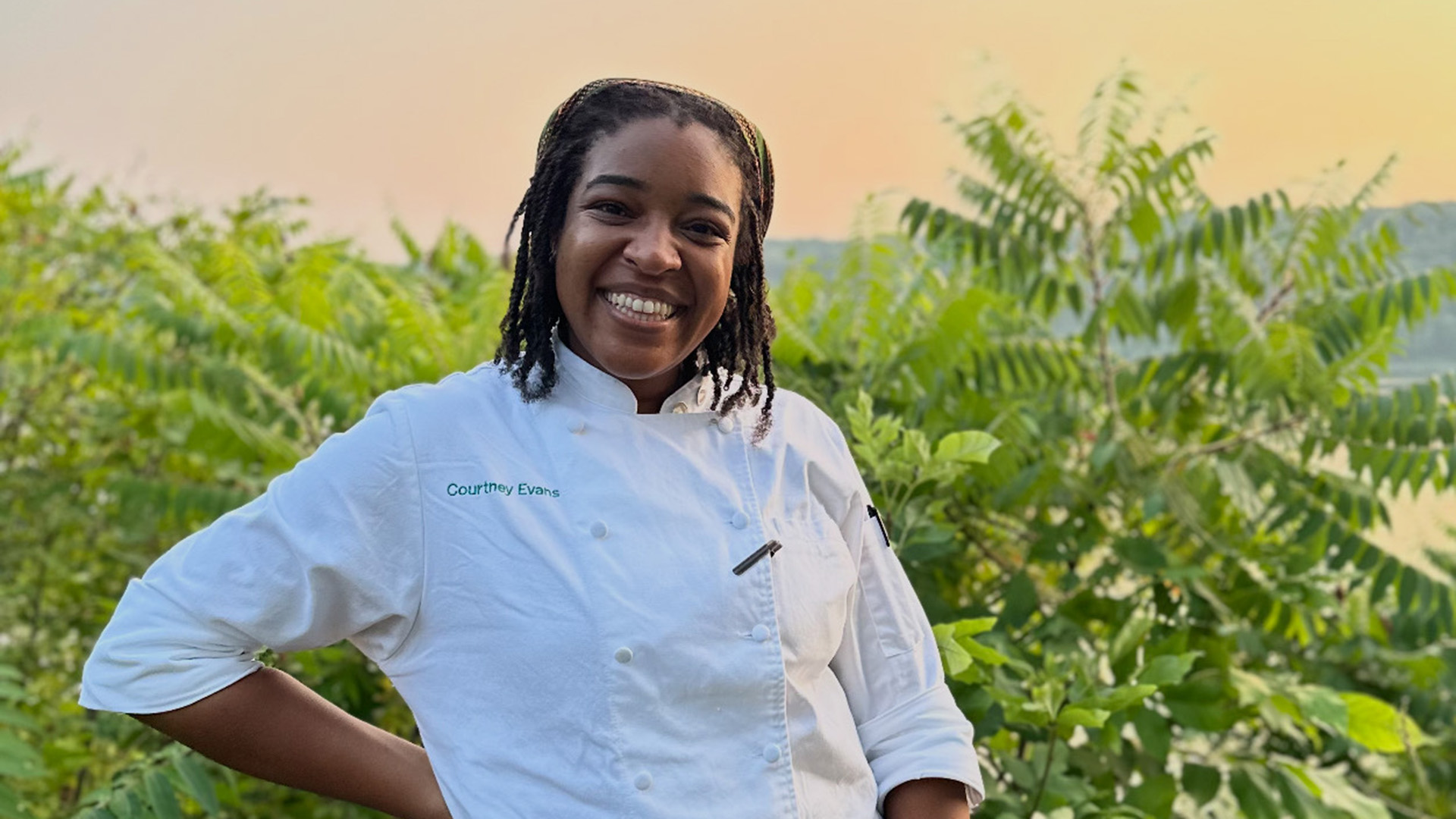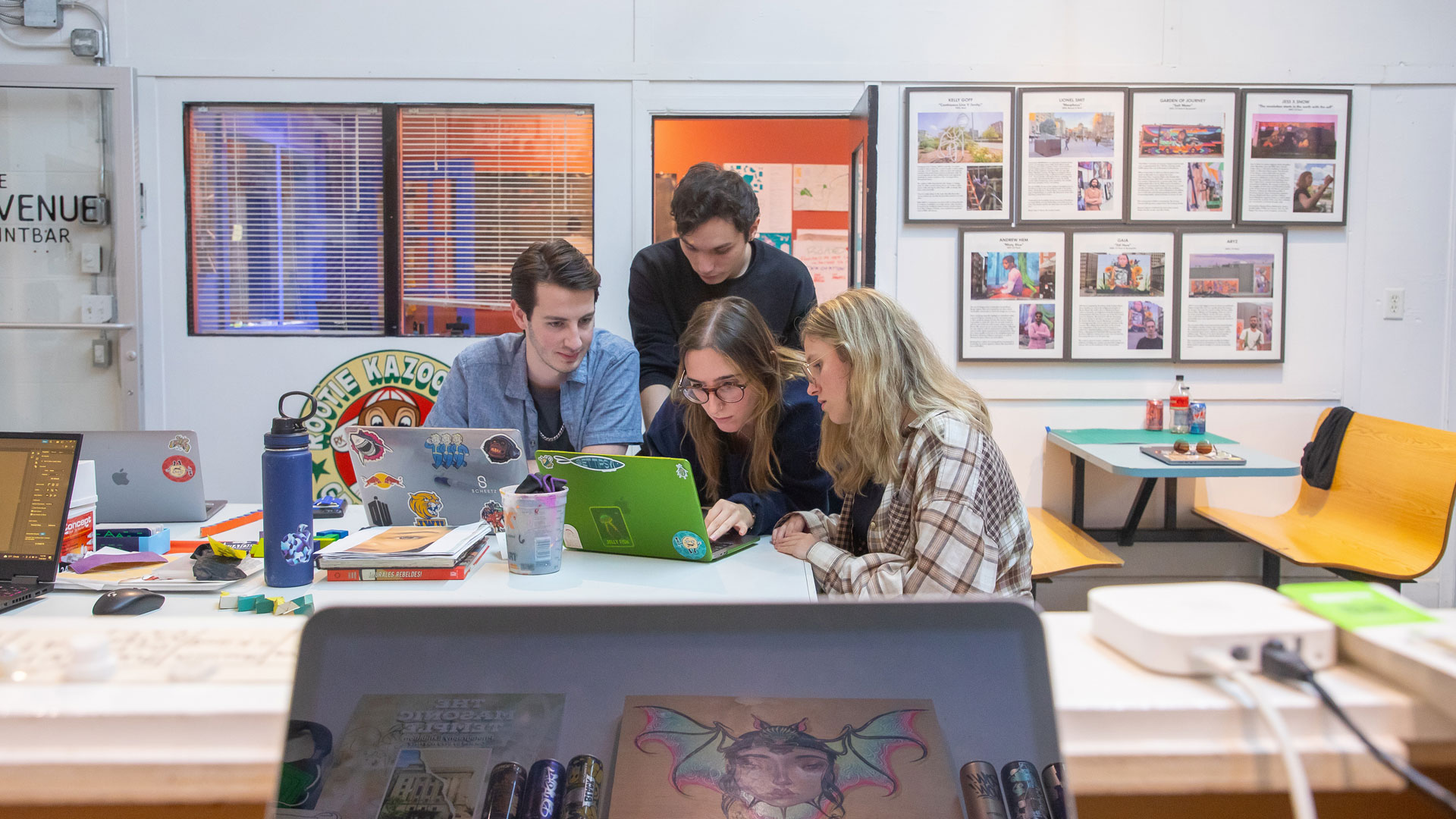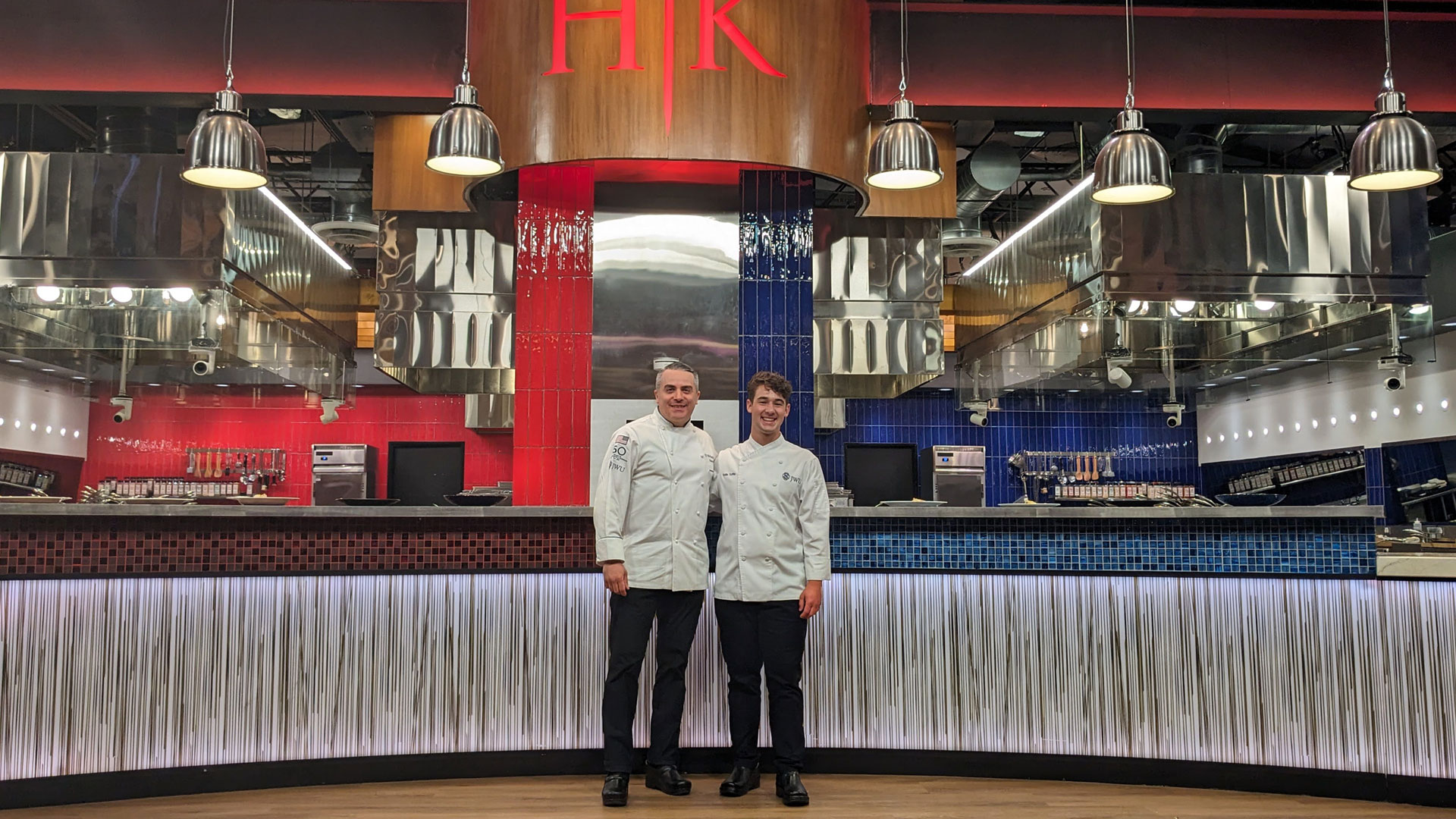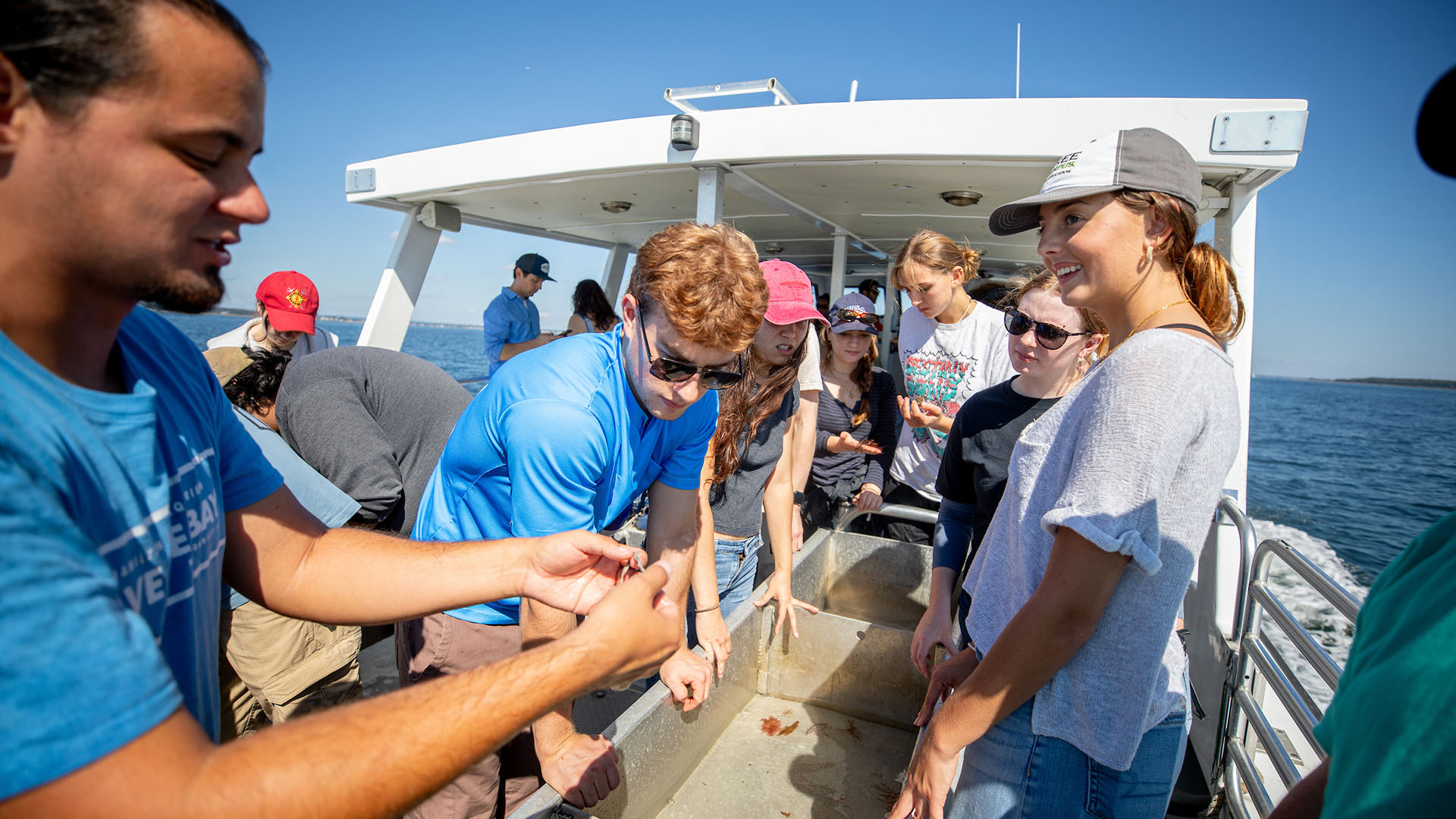Fighting Hunger & Having Fun: The King Arthur x JWU After-School Workshop
Most students don’t remember lectures in school — but a class where they make caramels and brown butter blondies? That’s something that’ll stick. This was the reality for K-12 students in Charlotte and Providence, thanks to an after-school workshop created by Baking & Pastry Arts instructors at Johnson & Wales University in collaboration with King Arthur Baking Company. JWU designed this program thanks to a grant provided by King Arthur Baking Company, which covered the cost of all ingredients, special equipment and salaries for those teaching the classes. Not only did the program teach K-12 students, but it also taught JWU students, as some of them had the opportunity to instruct these classes.
How the Workshop Started
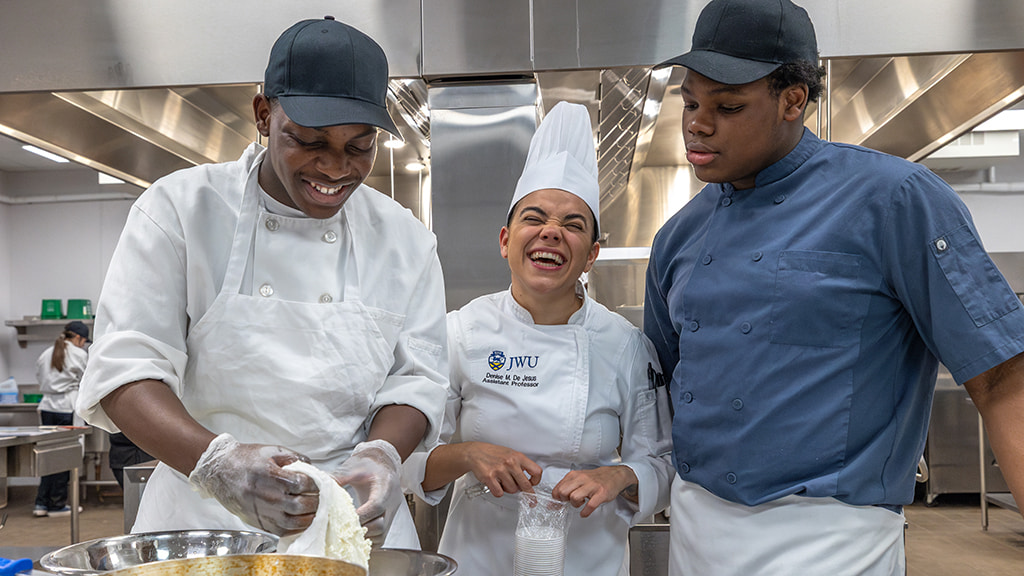
King Arthur Baking Company provided JWU with a grant for this program as a part of their For Goodness Bakes initiative, which “nurtures current and aspiring baking entrepreneurs through strategic partnerships and co-branded programming.” Beyond educating and inspiring young bakers, a major goal of the program with JWU was to help children facing economic instability have access to free food. This was a significant consideration when selecting which K-12 schools to include in the program, as well as which recipes to use in the lessons. “We wanted to try to target and visit schools that were underprivileged and really saw a need for students not only to learn about food and nutrition, but also where there might be food insecurity,” says Chef Thao Rich ’07, an associate instructor for the Baking & Pastry Arts program at JWU’s Providence Campus.
Rich is one of two baking instructors at JWU who developed the curriculum for this program. She became involved after the dean of JWU’s College of Food Innovation & Technology (CFIT), Dr. Jason Evans, reached out to her about writing a curriculum. Evans had been approached by King Arthur Baking Company about creating a diversity-focused initiative that students not typically exposed to pastry arts could partake in and learn about the joys of baking. Together, King Arthur Baking Company and JWU decided that creating an after-school workshop serving students throughout the Charlotte and Providence areas would be most beneficial to students at JWU as well as local communities.
A Collaborative Effort
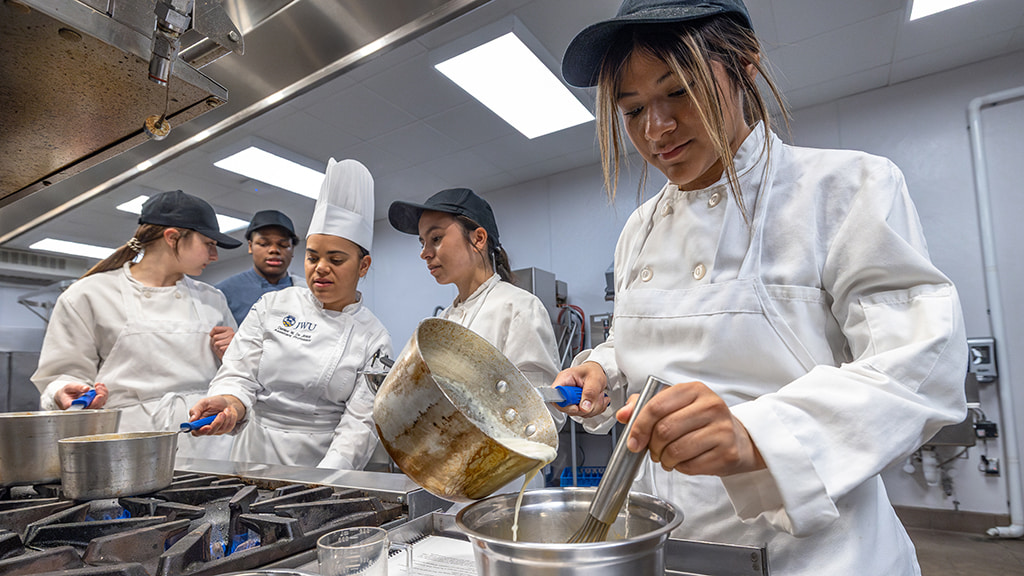
Rich jumped right into action, and in the Spring of 2024, she taught several off-the-cuff lessons to elementary students in the Providence area. These lessons were incredibly well-received, so come summer, it was time for her to create a proper curriculum so the program could hit the ground running in the fall. She connected with Chef Denise De Jesus ’14, an assistant professor of Baking & Pastry Arts at JWU’s Charlotte Campus. Over the summer of 2024, the pair worked together to develop a full curriculum that combined math and science concepts with a variety of baking recipes.
“Our goal with the program was to develop a curriculum where the kids are learning the science behind baking and pastry and know what the ingredients are doing in a recipe. But at the same time, we wanted them to have fun and be proud of what they are bringing home,” explains De Jesus. Beyond providing fun to K-12 students, Rich says that the kinds of recipes included throughout the curriculum were also important. “We wanted to give them something nutritionally sound to eat and take home.”
In the Fall of 2024, De Jesus started going to South Mecklenburg High School in Charlotte, North Carolina, where she met with a group of students after school throughout a twelve-week program. Meanwhile, Rich ran the program at several different schools in the Providence, Rhode Island area during the fall. In the Spring of 2025, Rich helped two JWU Providence Baking & Pastry Arts students, Kelli Bishop ’28 and Brianna Maguire ’25, get set up to run the program themselves.
Together, the student pair were paid to go to Gallagher Middle School in Smithfield, R.I. for eight consecutive weeks and teach using the curriculum developed by De Jesus and Rich. This was an excellent learning opportunity for them; beyond the chance to teach, they got to use the actual requisition system JWU instructors do and experience what it’s like to prep and set up for a baking class. Evans explained that they always intended to have JWU students involved in the program; however, they were thrilled to have students not just helping in the classes but leading them.
The Lesson Structure
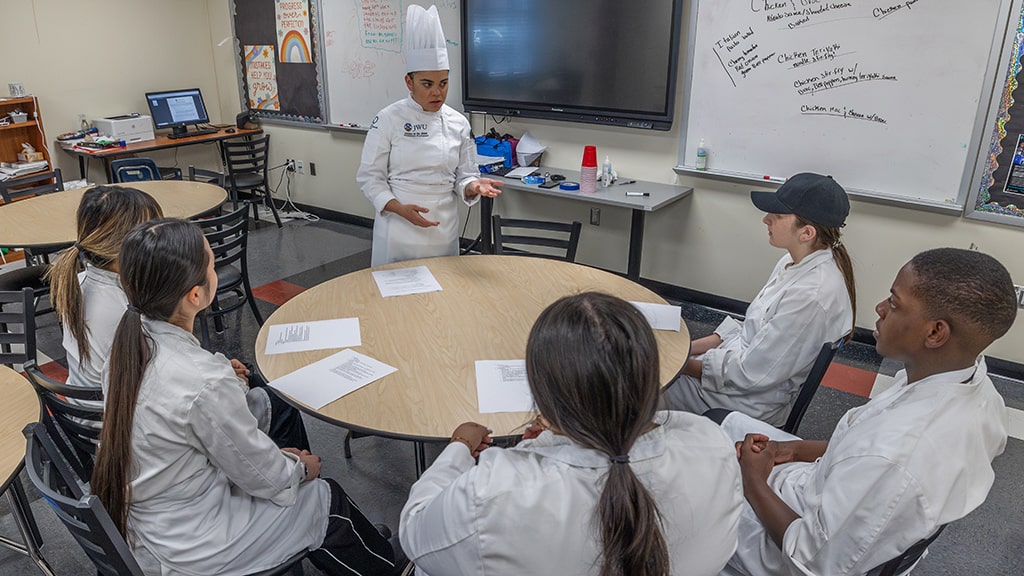
The lessons included recipes for everything from peanut brittle to pepperoni pizza scones and explored a wide range of concepts such as egg coagulation, gluten development and the differences between chemical leavening agents. Many lessons also explored concepts surrounding nutrition, allowing students to better understand the importance of a healthy and balanced diet. Each lesson began with a brief lecture from the chef, discussing the subject of the day and demonstrating the recipe of the day.
Next, it was time for students to get their hands dirty and begin creating. Typically, the students were divided into groups, with each group making a slightly different version of the same recipe, which allowed them to understand how different ingredients and techniques affect the final product. Not only did the lessons educate students and allow them to have fun in the classroom, but they also provided great social opportunities. “It was good to see them involved and gain better self-esteem as they moved through the program. Sometimes they were very shy, but toward the end of it, they were all having fun together,” says De Jesus.
A great example of the structure of the lessons comes from the first week of the curriculum. During this lesson, students baked chocolate chip cookies while learning about safety and sanitation procedures in the kitchen, as well as the differences between weight and volume. The lesson began with the instructor scooping flour and weighing it to show how measuring by volume can lead to an inconsistent yield. This also gave students a brief introduction to the metric system and how it compares to customary measures.
After this, the instructor demonstrated to the students how to make the cookies, showing them basic principles of safety, sanitation and organization in the kitchen — and then it was time for them to get into it! The students were divided into three groups, with two groups using different scooping techniques for measuring flour with dry measuring cups (volume), while the third group used a scale to measure their flour (weight). Once baked, the students got to sample the cookies and analyze how the different methods of measurement affected the final product in terms of texture and, of course, taste.
Building A Better Future for the Community
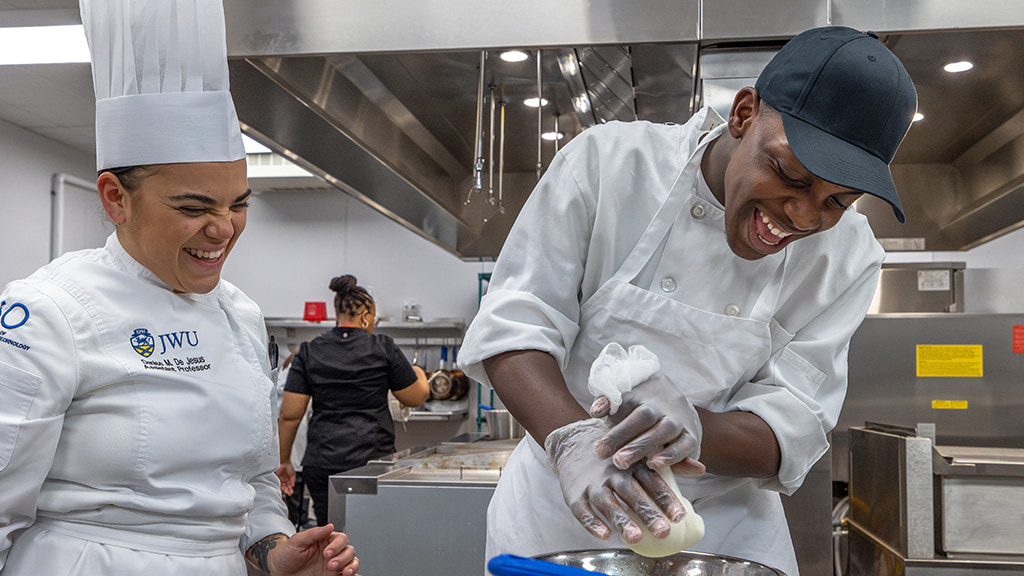
Ultimately, the program was a major success last year not only for the unique learning opportunities it provided, but also for the inspiration it brought to its many participants. In fact, one student who took part in the program at South Mecklenburg High School is set to start at JWU this fall. Thanks to his time working with De Jesus, he was able to see a future for himself in the culinary world, something he may not have realized had he not had this opportunity.
“At King Arthur, we believe the future of baking is shaped by inspiring and empowering the next generation of bakers. Through our partnership with Johnson & Wales University, we help students discover their passion for baking while equipping them with the skills, tools, and support needed to build fulfilling careers in the culinary arts” adds Jeff Yankellow, director of Bakery and Food Services Sales at King Arthur Baking Company.
The after-school program combines experiential education and community building by providing JWU students with an opportunity to teach, while also offering local K-12 students a chance to learn and socialize. Beyond its educational aspects, the program has the potential to be a vital resource to students facing food insecurity. Although plans for next year are still being finalized, Evans confirms that the program will run again.
Given the success of having JWU students teach classes in Providence last year, the plan is to get more Baking & Pastry Arts students involved. “It’s a fun gig for someone that might eventually want to teach or just loves getting out into the community and working hands-on with younger kids,” states Rich. JWU is deeply grateful to King Arthur Baking Company for funding this program, as it is a beautiful way universities can use their resources to serve not only their students but the communities around them.
